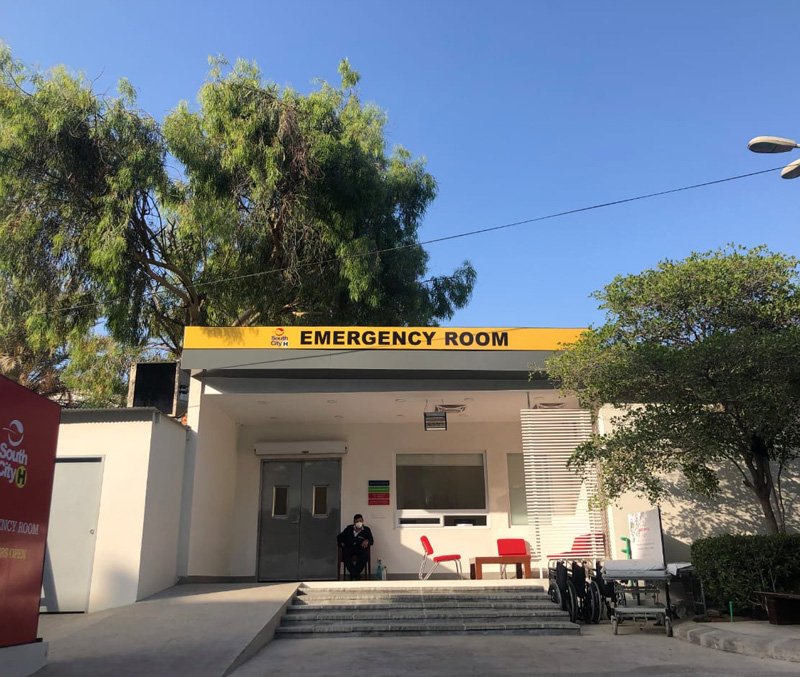
A sudden illness or injury often times requires immediate care. However, this year we seem to have been growing hesitant to step inside a hospital, opting for teleclinics instead. However, do teleclinics really serve the purpose as effectively as a physical examination at a fully equipped ER or a doctor’s visit might? Downplaying other ailments while living amidst COVID-19, could have long term impacts. Therefore, it is vital to make sure you are going for
those routine check-ups or rushing to the ER as soon as the need arises.
While fearing hospital borne illnesses, one only needs to do their research to learn about available options providing quality medical care. For instance, patients do have options like South City Hospital – a private institute which has taken extensive measures and followed strict protocols to ensure safety of patients and hospital staff. In a previous interview, Dr. Saadia Virk (CEO of South City Hospital), discussed the various measures her hospital took to
continue providing quality medical care, “We have invested heavily on demarcating a geographically separate unit dedicated for COVID19. The hospital has gone through extensive architectural changes too including installation of negative pressure units, a new ER, separation of consultant clinics, and increased capacity to accommodate more COVID19 patients because the country was obviously in dire need of it. We are also conducting screenings regularly for patients, healthcare workers and staff to ensure the hospital remains a safe zone for all those who are visiting.”
WHY VISIT THE HOSPITAL?
If you’re a parent delaying your child’s vaccination, you might be asking for trouble. Immunisation and timely vaccinating your child can help protect against other life- threatening ailments, suggests Dr. Sohail Thobani, Consultant Paediatrician at Karachi’s leading healthcare providers South City Hospital
Similarly, leading Consultant Neurologist, Dr. Nadir Ali Syed talks about the
importance of urgent treatment especially when dealing with strokes. Dr. Ali explains,
“a lot of people think that only heart attacks or cancers are emergencies. Unfortunately, one of the leading causes of death in the world is stroke. Strokes are a very common illness that may cause disabilities. If not treated timely,
patients can become handicapped or lose their life. It’s important to understand the strokes are an emergency. Symptoms may include, weakness, loss of consciousness, slurred speech, difficulty walking or a sudden headache. In such situations, please immediately rush to an ER.”
Uneasy about routine check-ups? We all know women who have been avoiding visits to the doctor especially expecting mothers. Did you know, ignoring symptoms that come across as insignificant might turn into something bigger if immediate diagnosis and treatment does not happen. Explaining the same, Dr. Rizwana Shoaib, Consultant Gynaecologist & Obstetrician (South City Hospital) says, “lower abdominal pain can end up in pre-term
labour or minor spotting can end up into heavy bleeding.”
And while we’re on the subject of women’s health, one cannot emphasize enough to not downplay breast lumps/pains. Even though breast pains or lumps don’t necessarily translate to cancer, urgent diagnosis and treatment can save many lives. South City Hospital’s Senior Breast Surgeon Dr. Rehman explains, “if a patient has a breast lump, they think every lump is cancerous which is not always true. Every lump is not cancerous but examination and diagnosis is vital. That’s simply because that lump in your breast could even be a painful
abscess causing discomfort and sleepless nights. Therefore, visit a breast specialist for them to examine and diagnose what you have. A cyst or benign tumour can be rectified and you can be sent back home. However, if God forbid it is cancer, then it’s important to diagnose as early as possible. Early disease detection comes a long way. Which could even mean we might not have to remove the breast and in certain cases, chemo might not be needed. Post
op recovery for such patients if great, they can continue with their normal lifestyle.”
WHEN TO VISIT THE EMERGENCY ROOM?
Make the smart decision and please make sure to visit the emergency room immediately
when someone experiences any of the following:
Wheezing, shortness of breath or difficulty breathing
Chest pain
Displaced or open wound fractures
Fainting or dizziness
Sudden numbness or weakness
Bleeding that cannot be stopped
Abdominal pain – especially intense localized pain
Fever with convulsions or any fever in children under 3 months
Confusion or changes in mental status
Coughing or vomiting blood
Severe headache or head injury, especially if the individual is on aspirin or blood
thinners
Blood in the urine or bloody diarrhoea
Sudden inability to speak, see, walk or move


